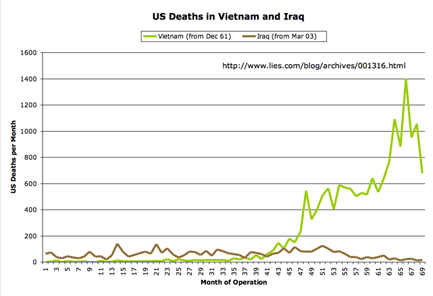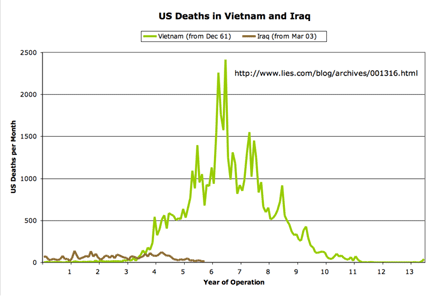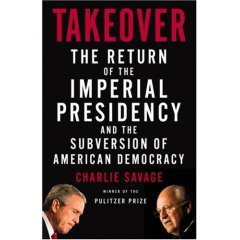Profiles in Republican Courage #3: Richard Lugar
Saturday, November 27th, 2010An example of the kind of reflexive anti-Obamaism that I was talking about with my “roadside bomb” post is the ongoing Senate dispute over ratification of the New START nuclear arms treaty. I want to give credit to Sen. Richard Lugar (R-IN) for being willing to stand up to his own party leadership, in particular to Sen. John Kyl (R-AZ).
Senate ratification of New START (which would require a two-thirds vote, meaning 9 Republicans in the current congress, or 14 starting next year) is a no-brainer in terms of US security interests, according to Lugar. Three Republican senators on the Foreign Relations Committee voted in favor of New START on September 16: Lugar, as well as Bob Corker (R-TN) and Johnny Isakson (R-GA). Along with the Democrats on the committee, that gave the treaty a 14-4 vote for ratification.
Kyl’s reasons for trying to put the brakes on ratification since then are a little unclear to me. The Wikipedia article on New START describes Kyl as an “arms control skeptic” who wants to withhold Republican votes in favor of the treaty until Obama will pledge to make a sufficiently large federal investment in “modernizing” US nuclear weapons. An alternate explanation is that Kyl is simply executing the Republican game-plan of denying Obama any victories whatsoever by any means necessary. Obama wants New START (having campaigned on furthering bilateral arms control), so preventing him from getting it helps Republicans make the case that he’s a failure who doesn’t deserve re-election.
The problem, of course, is that these sorts of actions have consequences that go beyond party politics. Bilateral arms control is not just an Obama campaign pledge. It’s something that benefits the entire country (well, world), regardless of your politics. Without New START, we’re essentially rolling back the clock on mutual verification to the time before that ultra-liberal Ronald Reagan managed to get the then-Soviet Union to join us in taking real, meaningful steps toward improved nuclear security.
More details:
White House moving ahead on New START with or without Jon Kyl – Josh Rogin writing at Foreign Policy magazine’s blog on November 19 about the current legislative prospects for New START ratification in the lame-duck session:
The bottom line is that the White House is no longer counting on Kyl to bring around his caucus and has reverted back to an earlier, second-track strategy to reach out to all the other GOP senators the administration thinks might vote “yes.”
“There’s a number that we need to get to get this passed. The question is, if Senator Kyl decides he is not able to support it now, whether a number of other Republicans would come on board and support the treaty,” one official said. “We believe that at the end of the day we will have made that so clear, the broader argument on the merits of treaty… can carry the day with enough Republican senators to get this passed.”
START ratification a matter of U.S. security, not petty politics – This appears to be either an unsigned op-ed piece or an editorial from the Asheville, NC Cititzen-Times from November 27:
The treaty has the support of six secretaries of states, six secretaries of defense, six national security advisers and eight U.S. strategic commanders. No one in any of those categories opposes it.
Is anyone opposed? According to Richard Burt, who negotiated the first START treaty for President George H.W. Bush, “(T)here are only two governments in the world that wouldn’t like to see this treaty ratified: the government in Tehran and the government in North Korea.”
…In light of this, there should be little difficulty in mustering the two-thirds vote in the full Senate necessary for ratification. Right?
Wrong. John Kyl, of Arizona, the No. 2 Republican in the Senate, has evidently decided on a course of obstruction…
It appears as if some Republicans have decided that their stance is going to be to oppose everything that comes out of the Obama White House, period. There used to be a time when the nation’s security was put ahead of partisan politics, but evidently that time has passed for Kyl and his ilk.
Charting His Own Course Against Prevailing Winds – Jennifer Steinhauer’s November 28 article in the NYT on Lugar’s position on New START. It includes this pithy quote:
“If Dick Lugar,” said John C. Danforth, a former Republican senator from Missouri, “having served five terms in the U.S. Senate and being the most respected person in the Senate and the leading authority on foreign policy, is seriously challenged by anybody in the Republican Party, we have gone so far overboard that we are beyond redemption.”
I don’t know what the chances are that eight Senate Republicans will join Lugar to vote in favor of New START, but here’s hoping.




